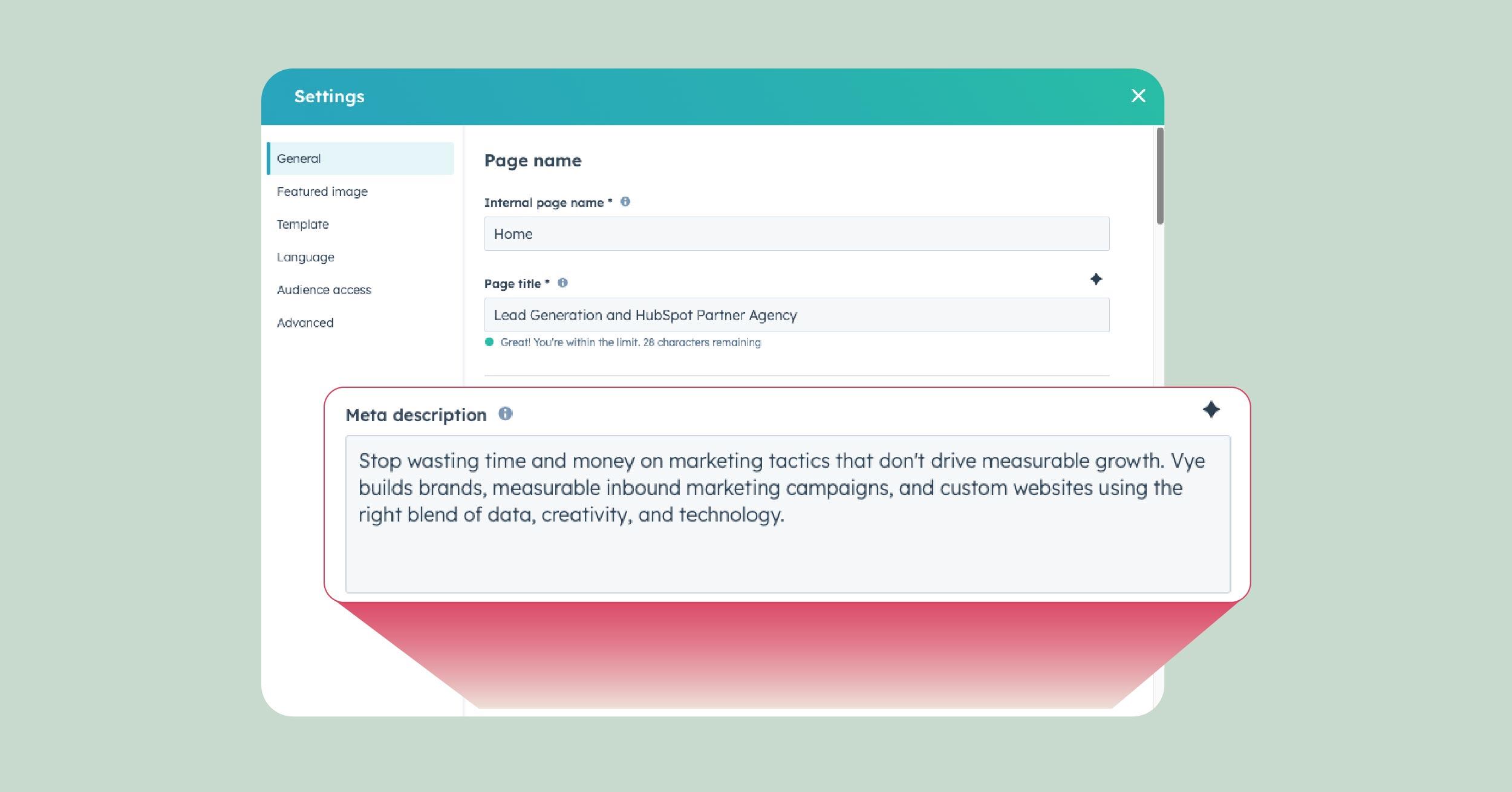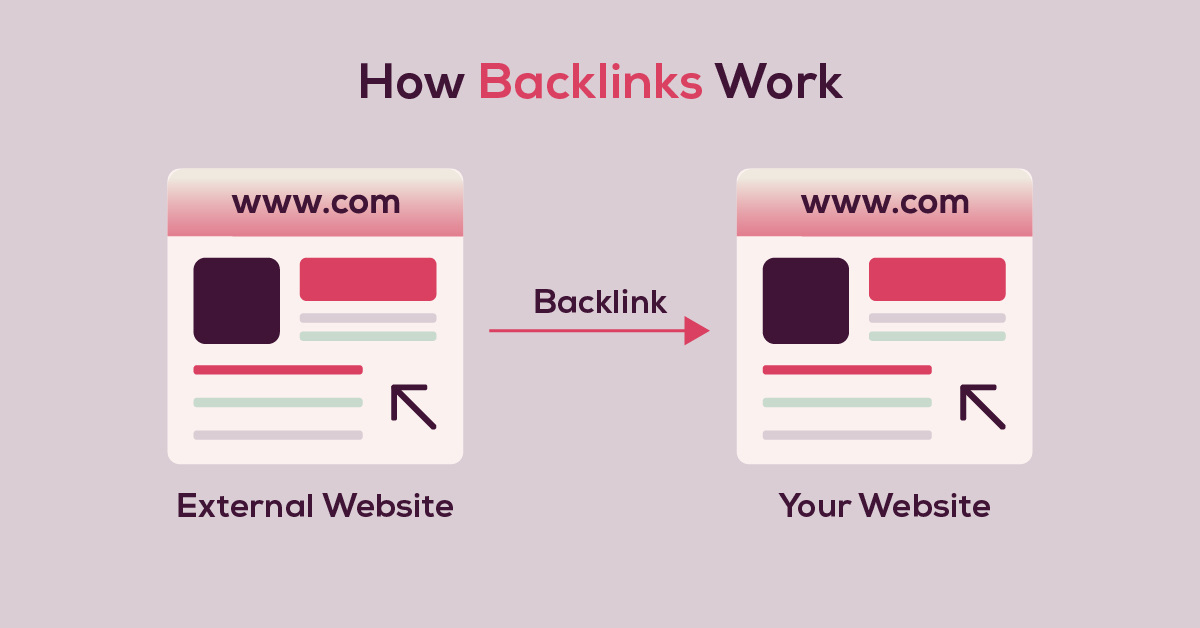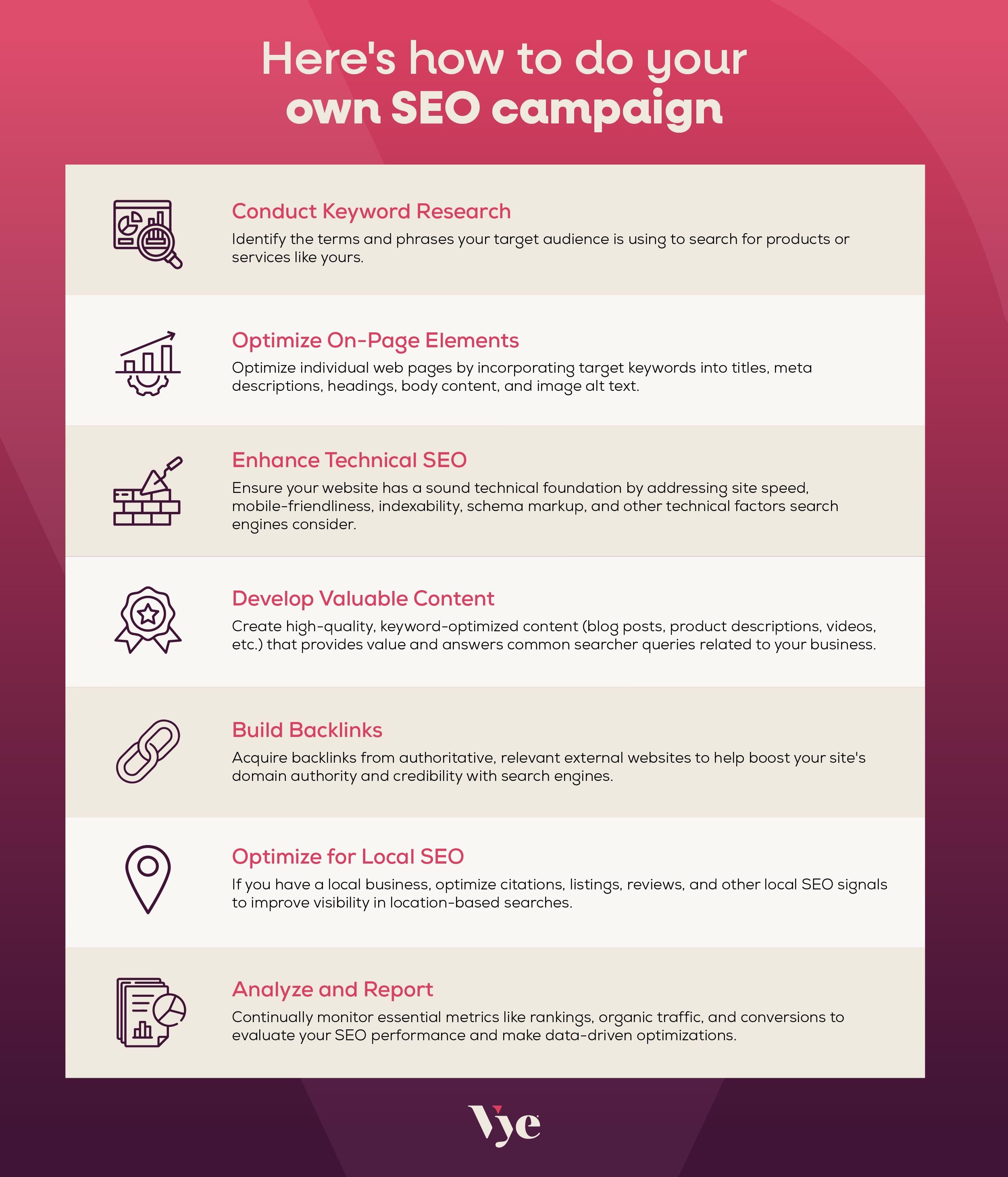Nobody wants to waste time creating content that doesn't rank. But as any experienced content writer will tell you, ranking in search results isn't easy, and it doesn't happen overnight.
For your content to perform well, you need to know how to do search optimization yourself. And no, it's not the archaic method of keyword-stuffing your blogs or web pages. It requires a strategic SEO (search engine optimization) campaign.
Keep reading to learn the basics of an SEO campaign and how to create one that helps you rank on Google.
Understanding how keywords work in SEO

Keywords are the foundation of an SEO campaign. These are the words or phrases people type into search engines when looking for information, products, or services. Each piece of content you publish should have a main topic that ties back to a keyword or keyword phrase related to your business.
For example, imagine you own a bakery, and you want more people to discover your delicious treats online. By using common search terms like ‘artisanal cupcakes’ or ‘custom cakes’ throughout your website, search engines recognize you as the go-to spot for treats.
What is an SEO campaign?
Unfortunately, keywords alone aren’t enough to help your website climb the ranks. That’s where an SEO campaign comes in.
An SEO campaign or audit is a comprehensive set of techniques and best practices designed to optimize various on-page and off-page factors that search engines like Google consider when determining a website’s relevance and authority.
How does an SEO campaign help you rank?

Performing an SEO campaign can help improve your website's rankings in several ways:
1. Identifies on-page issues
An SEO campaign analyzes all the on-page elements that influence rankings, like title tags, meta descriptions, header tags, content optimization, image optimization, internal linking, etc. It highlights any areas that need improvement to better align with search engine best practices and your target keywords.

2. Uncovers technical SEO problems
The audit checks for technical SEO issues like site speed, mobile-friendliness, indexing problems, duplicate content, and other factors that can hinder search engines from properly crawling and understanding your site. Fixing these boosts crawlability and indexability.

3. Evaluates content quality and strategy
It assesses the overall quality, relevance, and keyword targeting of your existing content. This allows you to update thin or underperforming content and plan a more strategic content development roadmap focused on topics that can improve rankings.

4. Analyzes backlink profile
The backlink analysis part of the campaign looks at the quantity and quality of external sites linking to yours. This helps identify harmful backlink portfolios as well as opportunities to pursue better backlinks that can enhance authority.

SEO campaign steps

Keeping the big picture in mind
Getting found online with SEO copywriting requires constant attention and an in-depth knowledge of how search engines operate. Above all, remember to focus on creating high-quality, easy-to-understand content. It’ll increase the odds of website visitors sticking around to read the content that you spent so much time putting together.
Custom SEO campaigns from Vye
With all that knowledge comes a lot of work. And if you’re like most business owners, finding the time to tackle these tasks can be harder than actually doing them.
Luckily for you, there’s a team of content writers and web developers waiting to help.
Vye is a full-service growth agency that specializes in all aspects of SEO — from content writing to back-end development. Get in touch with our team to learn more about how our custom-SEO campaigns can boost visibility for your business.

